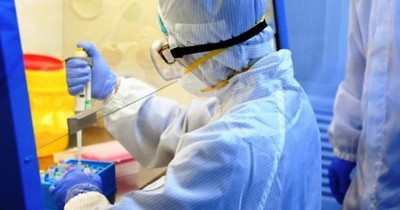
Officials of the U.S. government say a million of promised tests to diagnose coronavirus infections are soon to be in the mail. However, the said promises still leave a lot of local and state laboratories without the capability of testing the virus, critical for controlling its spread across the nation.
Relatively some states have already developed their own tests. More so, clinical testing firms have now joined the ranks to do some tests, too.
Early last week, LabCorp announced that physicians, or the other authorized health care organizations could already have its tests ordered.
Meanwhile, Quest Diagnostics announced on the same day that the firm would also offer a commercial test, pending U.S. Food and Drug Administration (FDA) evaluations.
Relative participation of the two commercial labs could greatly expand the testing ability in the U.S.
The Status of Coronavirus Testing
The latest report on Coronavirus (COVID-19) indicated that as of "March 6, at least 45 states are currently doing a test for SARS-CoV-2, the virus that causes the disease."
Oklahoma, Wyoming, Ohio, Maine, and West Virginia, as well as Puerto Rico, Guam, and the Virgin Islands are on the list with "in progress" of having labs authorized to conduct testing. This was reported by the U.S. Centers for Disease Control and Prevention.
Even states with tests may have just one kit, containing sufficient material to examine only 700 people. In addition to this, as of March 5, according to the said report, people had undergone a test at CDC.
The said figure does not include tests that are ongoing in many commercial and state laboratories, which started this week. That's the opposite of the United Kingdom where over 20,000 people have undergone tests as of March 6.
Out of these more than 20,000 cases, only 163 COVID-19 cases have been detected there.
How the Test Is Done
For those who have yet to know how the test is done, health professionals usually swab in an individual's throat or nose, collected the coughed-up phlegm up from the lungs, or squirt the liquid into the lungs, throat or nose, and collect the liquid once more, for testing.
Neither LabCorp nor Quest is going to collect the specimens. Rather, the doctors or other health workers may send samples to the laboratories for testing.
The samples then, are examined in a laboratory where the technicians need to extract and purify the genetic material of the virus "from the cell debris, mucus and other stuff in the samples."
According to Brent C. Satterfield, Co-Diagnostics founder, and chief scientific officer, "the preparation process of the sample is typically the biggest bottleneck in testing."
Co-Diagnostics, where Satterfield is affiliated, is a company based in Gujarat, India and Salt Lake City, which has developed its very own testing for coronavirus. This specific test can be employed clinically in Europe.
However, it has not yet been approved for use in the U.S. even though other laboratories can use elements of the firm's test to develop their diagnostic tests.











